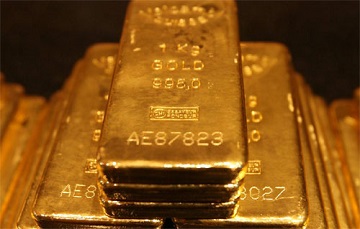370615-ocean treasure.jpg

Much of the gold in the oceans is not found in bar form, but dissolved in the water. Credit: Agnico-Eagle Mines Limited
Don’t tell anyone else, but we know where you can find a fortune in gold -- about 20 million tons of it. It’s in the oceans. Not in sunken pirate ships or Spanish galleons, but dissolved in the water itself.
In fact, ocean water is like a well-stocked chemical warehouse. About three-and-a-half-percent of it consists of molecules of something other than H-2-O.
Some of those molecules come from underwater volcanoes and volcanic vents that squirt out hot, mineral-rich water. But most of them come from land. Rain erodes the solid ground and washes small particles into rivers and streams. Many of those particles make it all the way to the oceans.
Chloride and sodium account for all but a small fraction of those particles. They’re the main ingredients in salt, so they make the water taste salty.
But the oceans contain a long list of other chemicals as well. A few of them are fairly common, such as magnesium, calcium, and potassium. But many others are quite rare -- they account for only a few parts per million or even billion. The list includes many economically important elements, such as silicon, aluminum, zinc, and nickel.
It also includes such metals as copper, silver, and gold. Gold is the least abundant of the three. At a price of $1200 per ounce, though, the value of all the gold in the ocean water adds up to more than $500 trillion.
Of course, to get that gold you’ll have to filter all the water in the world’s oceans -- a task that would cost a lot of gold.

